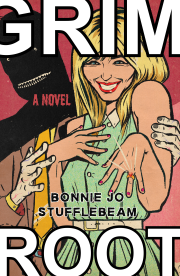The Pros and Cons of Having Your Own Website
by Monica Valentinelli
Whenever I’m at a convention, one of the more common questions I am asked is: “Do I need to have my own website?” I always counter with, “Well, what do you want to use the website for?” Several have answered me either with the proud declaration “To get published, of course!” or “To sell my books!”
Having an online presence may or may not translate to your desired action, in part because your presence really is about “you” as a person rather than “you” the author. With today’s technology, the two are not mutually exclusive. Even if you post personal things on one particular corner of the internet, doesn’t mean that other professionals won’t read those comments and form opinions about you. In this way, a website can help you manage either the “first” impression that people have about you or a designated location you can send your readers, editors and other professionals to. There are pros and cons to having your own website that depend upon where you are in your career and what message about yourself you’d like to share.
It is easier than ever before to create a website that looks polished with a small budget. Content Management Systems (CMS) like WordPress are a boon to many writers because they allow you to schedule content and update your website fairly easily. Depending upon how you want to treat visitors to your website, you can do all your website updates (e.g. if you have a blog component in your website) weekly, and then set your content to automatically post. Since the technology does exist to “do-it-yourself,” many people (authors or not) are drawn to the idea of having their own presence online.
A website can help leave a positive first impression if it’s designed well and your content is professional. (By designed well, I mean easy-to-use and easy-to-read.) Typically, I recommend not posting extremely personal content on your personal website, because you really don’t know “who” the audience is going to be. It could happen that your neighbor, a random reader, or an HR professional stumbles across your website. For this reason, I tend to use different tools for different reasons. My own website (located at http://www.mlvwrites.com) is very different from my LiveJournal or my Facebook account because my content varies depending upon where I’m writing it.
If you’ve never been published, but you are an aspiring author, having your own website might actually work against you depending upon the content you post on it. For example, if an agent “googles” your name and comes across a website full of bad poetry or rants about not getting published, chances are you have potentially left a bad impression in that person’s mind. However, a web presence can work “for” you. Short writing samples and discussions about the craft of writing can show a positive attitude and an enthusiasm for the industry.
If you have been published, your website can also help your readers find a point-of-contact for you as an author. Once you have a website, you’ll need to maintain the technology and occasionally update it with news about your career or your writing for your readers. That strain on your time can work both for and against you. In one respect you’re providing content about you or your books for your devoted readers. In another, if you don’t plan on being online very much you might view those updates to be a chore. Some readers react positively to a static presence; some don’t. While you can’t control what your readers think of your site, an “official” web presence can be a really positive thing for your readers and your “author’s brand” because your news is coming from another authoritative place
For any website, whether you currently have one or not, I feel that the most important thing to consider is what message you are trying to convey. Even though a website isn’t a guarantee that someone will “discover” you, I like to think of it as a tool that you can wield rather than regard it as a room you’re hoping someone will stumble into.
About the Author
 Monica Valentinelli is the content and web analytics manager for the digital sheet music retailer http://www.musicnotes.com and the project manager for the horror and dark fantasy webzine www.flamesrising.com. In her spare time, Monica enjoys writing fiction, and has over a dozen game and fiction credits to her name including: “Pie,” a short story found in the Buried Tales of Pinebox, Texas, her recent novella “Twin Designs” which was part of the collection Tales of the Seven Dogs Society, her flash fiction piece “Prey” on Pseudopod.org with more works on the way.
Monica Valentinelli is the content and web analytics manager for the digital sheet music retailer http://www.musicnotes.com and the project manager for the horror and dark fantasy webzine www.flamesrising.com. In her spare time, Monica enjoys writing fiction, and has over a dozen game and fiction credits to her name including: “Pie,” a short story found in the Buried Tales of Pinebox, Texas, her recent novella “Twin Designs” which was part of the collection Tales of the Seven Dogs Society, her flash fiction piece “Prey” on Pseudopod.org with more works on the way.
To read more about Monica, visit her blog located at www.mlvwrites.com.


